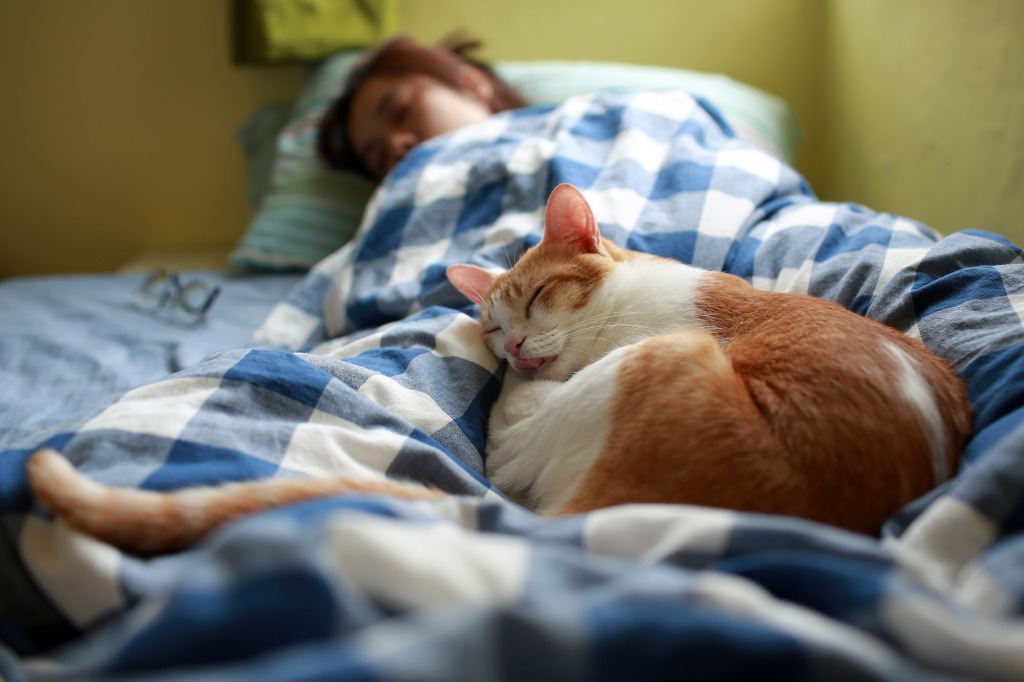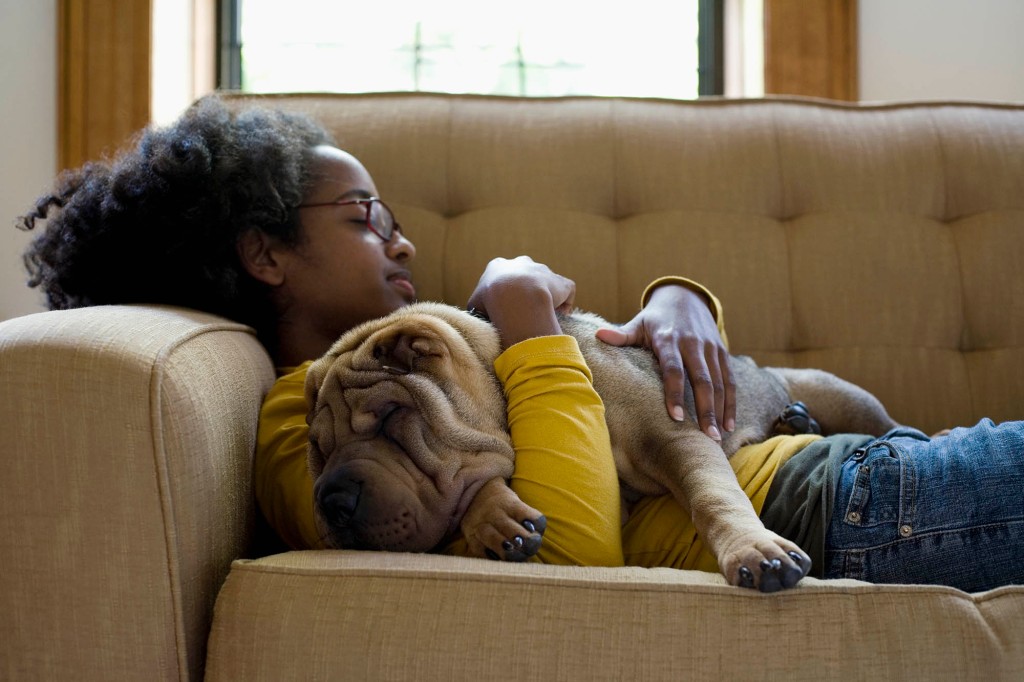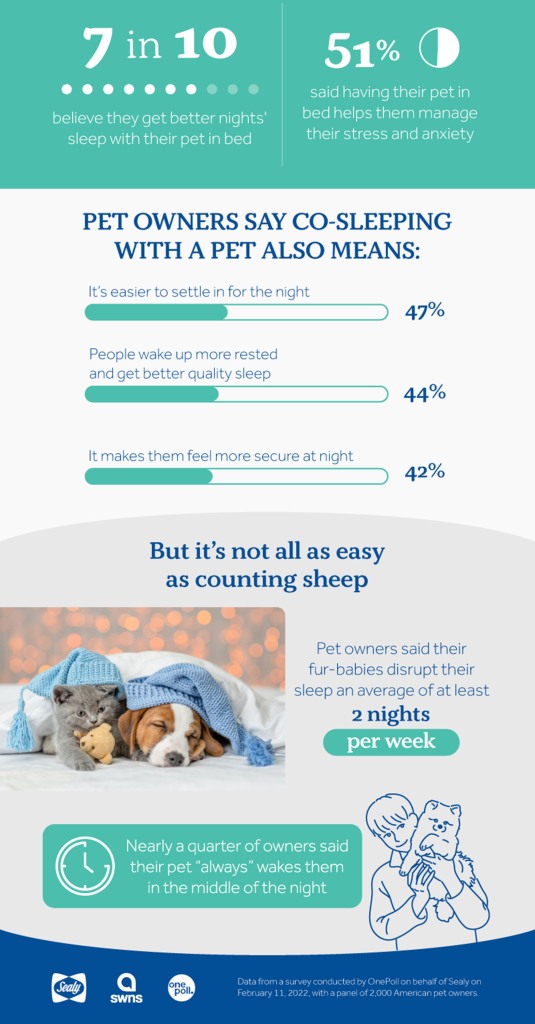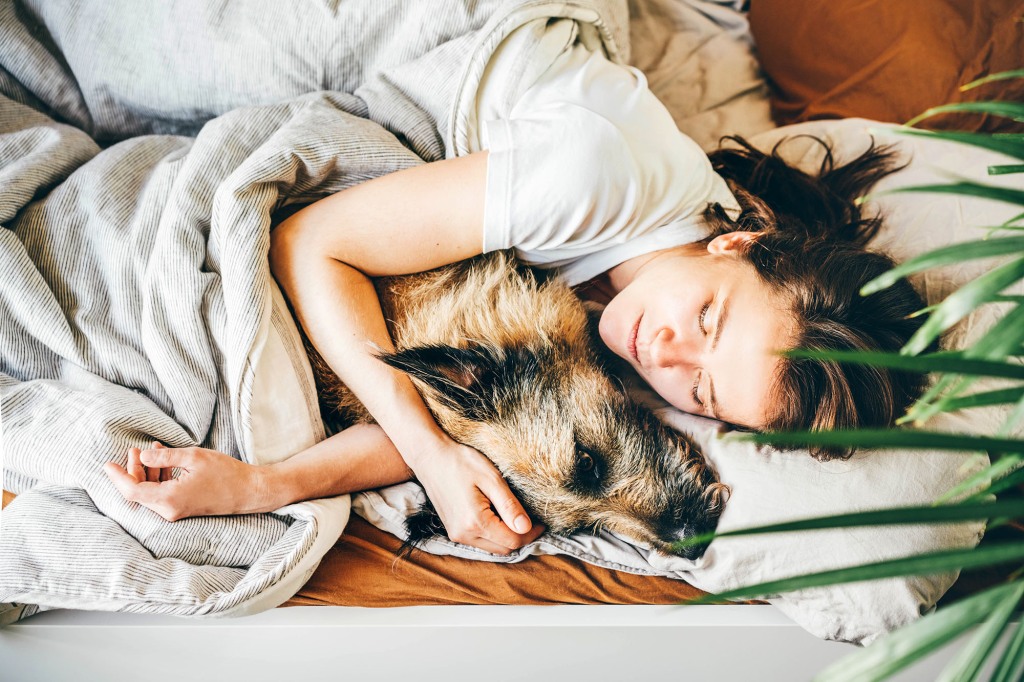More people would rather sleep with their pet than their spouse
They might not complain about being in the doghouse now.
A new survey found that pet owners actually prefer sleeping with their pets over their partners.
Out of 2,000 American pet owners in the study, which was reported by OnePoll and commissioned by mattress company Sealy, 66% said they allow their precious pets to sleep in their bed, while 58% of respondents in relationships admitted to preferring to share a bed with their furry friends and not their significant others.
Slightly more than half (51%) said that doing so aided their stress and anxiety, while 42% said their cuddly company makes them feel secure in bed overall.
The survey even discovered owners consider their sleep improved when sleeping with a pet in bed.

“Having a good night’s rest is crucial to our overall health and well-being,” Brent Pfister, the senior vice president of marketing for Sealy, told South West News Service. “As shown by this study, co-sleeping with pets can bring a sense of security and can help people and their pets settle in easier for bedtime; however, many people sleeping with their pets experience interrupted nighttime sleep and so may also be sacrificing overall sleep quality and some of the more physical benefits gained from a night of good sleep.”
But it isn’t all that surprising, since nearly 80% of the pet owners surveyed said they treat their pets just like humans, as 54% of pet owners considered their lovable animals to be members of the family.
Despite feeling comforted and relaxed next to their four-legged friends, pet owners reported that their sleep was disrupted two nights a week on average because of their cute companions’ restlessness. And 62% blamed their pets for feeling overheated.


Even though there may be some minor disruptions if their pets go bump in the night, two-thirds of the surveyed owners said their pet’s internal clock is better than theirs, regularly using their fluffy friend as a guide for when to wake up and fall asleep.
“There are several relatively easy steps people can add to their sleep routine to get the high-quality sleep they need,” Pfister told SWNS. “The first two suggestions are limiting exposure to disruptive blue light from phones and TVs before bed, and, as much as possible, going to bed and waking up around the same time every day.”

Read the full article Here


